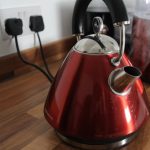British homes will soon be hit with huge spikes in energy costs. Is there a way to beat the rises? Probably not completely. But although the UK’s housing is the least energy-efficient in western Europe, there are ways to ensure bills are not as bad as they could be.
Turn the heating down by 1C
According to energy supplier Utilita, households will typically be able to save £321 a year by turning the heating down by just 1C from 1 October – the date when the new energy price cap takes effect. This tip would result in a typical saving of £158 even before the price cap rise comes into force.
Change how you do washing
Running anything other than a full machine means that you are likely to have to do additional loads and run up further bills. Utilita says that if you stick to using your washing machine at maximum efficiency, then you could save £17 a year.
Washing clothes at higher temperatures will use more energy, so savings can be made when you turn down the dial. The Energy Saving Trust says that washing at 30C, rather than 40C or higher, will save 40% of the energy used every year, and that modern washing powders and detergents will work effectively at lower temperatures.
A tumble dryer will run up more costs, so try to air-dry on a clothes horse or washing line. Utilita says there is a £116 saving to be made.
If you do have to use the tumble dryer, spin clothes at the highest cycle in the washing machine before putting them in.
Avoid standby, unplug gadgets
This will typically save you almost £100 a year, says Utilita, and unplugging devices at the mains will make sure they are not adding to your bill unnecessarily. Some gadgets are often left on all the time barely noticed by the householder, such as computers, media servers, set-top boxes, heated towel rails and underfloor heating – collectively known as the “phantom load”.
Research from Loop, an app which analyses smart meter data, shows that leaving electric underfloor heating on for an extra hour a day costs £309 a year – or an estimated £567 after the coming rise in the cap.
It won’t recoup a fortune, but a simple step is to turn lights off when you leave a room, which it is estimated will save £46 a year.
Large appliances
Some of these, such as fridges and freezers, must stay on all the time and will always add to the energy bill. A simple way to save is to limit the number of times their doors are opened.
Jason Smith of AO Logistics explains: “Every time the fridge door is opened, cold air escapes and warm air enters, which means the appliance must work harder to reduce the temperature.
Cooling the air costs money, so the less you open the door, the less you spend.”
Hold on to the manual
Don’t throw out the instruction manual when you buy a new device – it can contain useful information on how to save.
Not understanding how a device works can result in unnecessary use of energy. “For example, don’t stick to the preset programmes,” Smith says. “Every appliance will have multiple settings, programmes and cycles that can be tailored to your circumstances – reducing the amount of water, electricity and energy used.
“People often use more electricity than they need to because they don’t understand how their appliance works. Instruction manuals are a free and easy way to reduce costs, and don’t worry if you have thrown it away – you can access manuals from most manufacturers online.”






Leave a Reply
You must be logged in to post a comment.